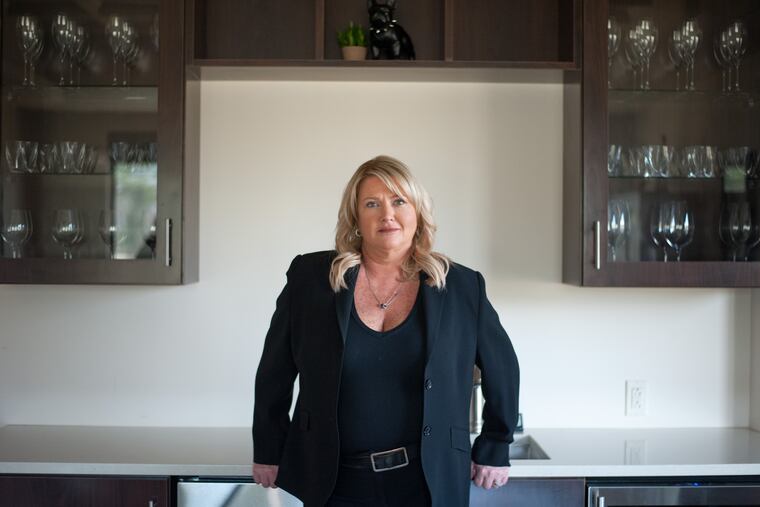At UME, Chapman emphasizes the strength of flexibility
Anne Marie Chapman joined UME in 2015, after more than 20 years in the industry. She got her start at a third-party administrator before becoming a general manager underwriter, then leading a company that sold to a major insurance provider. Today, she’s UME’s sole owner.

For a person whose teenage dream job was “weather girl,” Anne Marie Chapman has come quite a ways. As principal and CEO of Lansdale-based Underwriting Management Experts (UME), she runs the country’s largest privately held managing general underwriter, which does $1.2 billion in business per year.
Chapman joined UME in 2015, after more than 20 years in the industry. She got her start at a third-party administrator before becoming a general manager underwriter, then leading a company that sold to a major insurance provider. Today, she’s UME’s sole owner. She works with a team of 55 underwriters, claims representatives, and accounting specialists in her Philadelphia-area headquarters, and directs 10 more employees in satellite offices in Indianapolis, Atlanta, and Tampa, Fla. Although Chapman has to keep up with an ever-changing industry, she’s decidedly down-to-earth when it comes to strategy and success. UME is a Top Workplace for the second year in a row, and Chapman received the Top Leadership Award for small companies, based on her employees’ survey responses.
What makes an ideal UME employee?
Truly, I think it’s the tenacity to do your job every day. … It’s just day in, day out, coming to work, performing your job, leading by example, being trustworthy to clients, continuing to grow, and being innovative in our market space. You need to be a person who can solve clients’ problems and help them out where they need it.
Ours is an entrepreneurial business. If you’re looking for a regimen, you won’t want to work here. You need to be able to be flexible.
How do you keep up with frequent industry changes?
I watch the news. I pay attention to trends and government regulations.
How do you connect with your employees?
I spend a lot of time when I’m here speaking to people about business. But I make sure to connect on more than just business. If you know your workers on a family level, know their children, their wives’ names, that’s a better way.
Describe your employees.
I have had people who have worked for me for over 10 years, who worked for me in my prior company. Our president has worked for me since she was 18; she’s worked for me for 17 years. At least 50 percent of my staff has worked for me for six or seven years. As we’ve grown, we’ve brought on more people from outside, but my core group has stayed with me.
How do your millennial and Gen Z employees differ from your longtime workers?
I enjoy the diversity of younger people. They bring something new to the table. They have a different thought process, and they’re having their kids later, but I don’t find them to be that much different. Everybody here wants to work hard. If you give our younger workers a challenge, they are generally up for the task.
What kind of traditions do you have at UME?
Every month, we choose a charity, and regardless of what it is, we all participate, by contributing by person or department. We’ll collect coats for the women’s shelter. We do food drives at Christmas and Thanksgiving. We do volunteer work where we go and feed the homeless. We all participate in the Philly AIDS Walk. We have 100 percent participation. Everybody here wants to give back.
What does diversity mean to you?
I’ve believed since, well, forever, that people should feel welcome no matter what. Diversity is really just the acceptance of everyone for what they are.
I’m the mother of five children, in a blended family: three in college, one at law school, and an 8-year-old. If you’re a parent and you want to teach your children, you lead by example. You let them know you can be who you want to be, and there’s nothing wrong with that.
Do women in particular come to you for advice?
Yes, because of the position that I’m in. I tell them all pretty much the same thing: There’s no place for gender bias in the workplace.
If you go anywhere thinking you are less than you are — if you go in thinking you’re at a disadvantage — then you will be. If you consider yourself an equal, at the end of the day, you will be. If you want to be treated equally, along the way, not all things will go well. You will have things that are negative come along, and you should be OK with having those kinds of things happen to you.
Never think that you’re at a disadvantage because of your gender.
What’s the secret to believing in oneself?
In my world, the more willing I was to being uncomfortable — to, for example, have an uncomfortable conversation about my pay — the more willing my employers were to pay me what I was worth. The first time you do it, you’re scared to death. But the 10th time, you’re not scared anymore.
If you’re worked for it, and you outwardly and inwardly believe it, that’s the most important thing. If you do the work, you should show it.
What’s UME’s culture like, when it comes to promotions and raises?
If you work for us, you can work your way up the ladder. I’m a big believer in upward mobility. When I started out in the industry, I came in as the director of operations, and then was the president for 17 years.
I encourage conversations about compensation within my company. Out of the 60-some employees that I have, two-thirds of them are female. I assure you there’s no gender bias as far as pay for me. If you don’t want gender bias, get a woman boss.